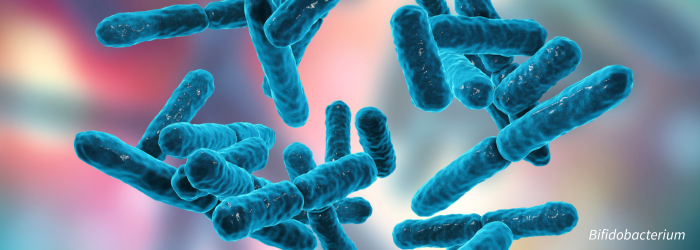
In 1990, breast cancer accounted for 380,910 of deaths worldwide, and despite increased awareness and treatment development, this figure is set to almost quadruple by 2050 making it is as important as ever for scientists to delve further into the aetiology and therapies for breast cancer, to prevent such a boost in mortality [1]. Arguably, it is common public knowledge that factors such as excessive alcohol use, poor diet and smoking can lead to breast cancer, and that therapies including radiotherapy and chemotherapy are often to used to treat the disease, there are alternative links that pose as an avenue for further investigations – one being gut microbes [1].
Incorporation of microbes with anticancer treatments was observed as early as the 19th century, where human tumour tissues were injected with inactivated Streptococcus bacteria [2]. Undoubtedly, as science has progressed, the success and intricacies of this has vastly improved with gut microbes being studied for their role in radiotherapy, chemotherapy and immunotherapy [2]. For example, Akkermansia muciniphila, a common anaerobe of the gut microbiome, has been found to increase recruitment of T lymphocytes to tumour cells and increase the efficacy of the immunotherapy anticancer drug, PD-1 blockers [2]. Similar positive results have been observed for the chemotherapy drug 5-Fluorouracil, whereby Lactobacillus plantarum activates Wnt/β-catenin signalling and promotes capase-3 activity [2]. Whilst both PD-1 blockers and 5-Fluorouracil are effective in treating breast cancer alone, promising results showing use of microbes in conjunction with these drugs provides a more of a hopeful future to breast cancer survival.
The link between gut microbes and cancer is established, but some of the mechanisms behind this link remains poorly understood [3]. More recent research has investigated mechanisms responsible for the anti-cancer potential of Bifidobacterium species [3]. Using a Whitley Anaerobic Workstation, Price et al. cultured five Bifidobacterium species and assessed their impact on BRPKp110 luminal A-like breast tumours; a novel mechanism was identified where B. pseudocatenulatum 210 capsular exopolysaccharide (EPS) negotiates anti-tumour immunity from the gut [3]. Via dendritic cell activation, the EPS induces CD8+ T cell-dependent anti-tumour immunity and increases IFNγ+ TNFα+ poly-functional CD8+ T cells at the primary tumour site [3]. Such results provide promise of this microbes use as a new immunotherapy compound, and ultimately lower the mortality rate linked to breast cancer [3].
With more researchers studying the mechanisms underlying how microbes can have such an impact on cancer cells, it is hopeful that there will be more understanding and more progression and success in anti-cancer drug development.
References
- Xu Y, Gong M, Wang Y, Yang Y, Liu S, Zeng Q. Global trends and forecasts of breast cancer incidence and deaths. Scientific Data [Internet]. 2023 May 27;10(1):334. Available from: https://www.nature.com/articles/s41597-023-02253-5
- Sun, J., Chen, F. & Wu, G. Potential effects of gut microbiota on host cancers: focus on immunity, DNA damage, cellular pathways, and anticancer therapy. ISME J 17, 1535–1551 (2023). https://doi.org/10.1038/s41396-023-01483-0
- Price C, Nicklin A, Kujawska M, Koev T, Ilker N, Fowler W., et al. Bifidobacterium pseudocatenulatum capsular exopolysaccharide enhances systemic an3- tumour immunity in pre-clinical breast cancer. bioRxiv. 2024 Sep 24;


 de
de


 English
English